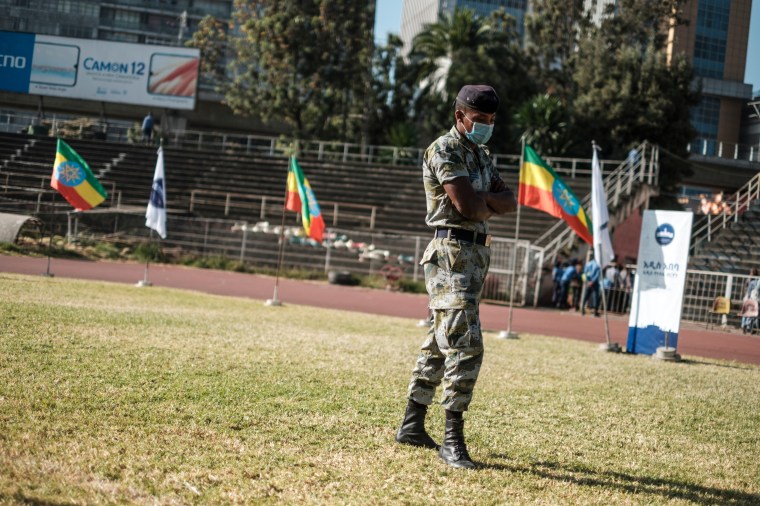Nairobi, November 13, 2020 – Ethiopian authorities must immediately and unconditionally release journalist Medihane Ekubamichael, and stop detaining members of the press, the Committee to Protect Journalists said today.
On November 7, federal police arrested Medihane, an editor at the privately owned news website Addis Standard, at his home in Addis Ababa, the capital, and the following day confiscated his identification documents and laptop, according to reports by his employer and Tsedale Lemma, the publication’s editor-in-chief, who spoke to CPJ via messaging app.
Police held Medihane until November 9, when he was presented before a court without a lawyer present, and authorities were granted permission to hold him for two weeks pending an investigation, according to those reports. However, later that day, police released Medihane on the condition that he report back to police the following day to collect his belongings; when he did so, police arrested him again, according to the Addis Standard.
At the November 9 court hearing, police accused Medihane of making “attempts to dismantle the constitution through violence” and “outrage against the constitution,” according to the Addis Standard’s reports and Tsedale.
Prior to his arrest, Medihane had led the Addis Standard’s coverage of the conflict between Ethiopia’s federal government and regional forces in the northern state of Tigray, according to Tsedale, who said she believed his arrest to be connected to this work and his Tigrayan ethnic identity.
Medihane has not been formally charged with any crime and he is expected back in court on November 22, Tsedale said.
“Throwing journalists in jail on vague grounds and in connection to their journalistic work is a sharp betrayal by an Ethiopian government that came into power promising a new era of press freedom,” said CPJ Sub-Saharan Africa Representative Muthoki Mumo. “Authorities should immediately and unconditionally release Medihane Ekubamichael, and reverse this trend of detaining journalists without charge.”
Following his re-arrest on November 10, police prevented Medihane’s lawyer and his wife from seeing him in detention at the Addis Ababa Police Commission, Tsedale told CPJ. Yesterday, Medihane’s wife and his lawyer were allowed to speak to him briefly, but the conversations were not private, according to Tsedale.
Seperately, on November 10, Ethiopian authorities also arrested Haftu Gebregzhiabher, Tsegaye Hadush, and Abreha Hagos, three journalists with the state-owned Ethiopia Press Agency according to a statement posted on Facebook by the Ethiopia Human Rights Commission, a national human rights watchdog.
On November 4, authorities also detained a former journalist with the privately owned Oromia Media Network, Udi Mussae, according to a Facebook post by that outlet and Hussein Abduljebar, a lawyer who visited the journalist in jail and who spoke to CPJ via messaging app.
Udi worked at the Oromia Media Network until the closure of the outlet’s Ethiopian offices in June, and is detained in the Oromia region city of Adama, according to that post. Hussein told CPJ that authorities had not interrogated Udi or presented him in court, and that local police claimed they were holding him at the behest of federal authorities.
CPJ is investigating the Ethiopia Press Agency and Oromia Media Network detentions and was unable to immediately confirm the motives for the arrests.
On November 4, authorities arrested Bekalu Alamrew, a reporter at the Awlo Media Center, in connection to his coverage of unrest in Tigray, as CPJ documented at the time. Police have been granted permission to hold him without charge until November 17, according to Awlo Media Center managing director Woldegiorgis Teklay, who spoke to CPJ via messaging app.
In a phone interview with CPJ, federal police spokesperson Jeylan Abdi said he could not comment on the arrests of Medihane or other journalists in the country because he did not have enough relevant information and that he needed to confer with the recently appointed police commissioner, Demelash Gebremichael.
When CPJ called Demelash for comment yesterday, he said he was newly appointed to his position and needed more time before responding; when CPJ called and texted him today, his phone was busy and he did not respond to messages.
CPJ also emailed the office of the federal attorney general yesterday evening, but did not receive any response. CPJ called Oromia region spokesperson Getachew Balcha, but the call did not go through.
